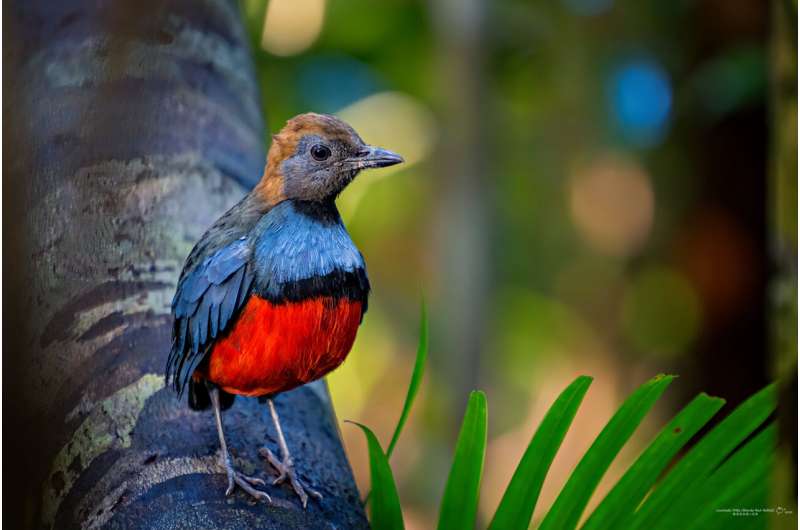This article has been reviewed according to Science X's editorial process and policies. Editors have highlighted the following attributes while ensuring the content's credibility:
fact-checked
peer-reviewed publication
proofread
Scientists say 'lost' birds list will aid in protecting species

A group of scientists has released the first comprehensive list of birds that haven't been seen in more than a decade, with the help of Macaulay Library at the Cornell Lab of Ornithology.
Their methods, and the global list of "lost" birds, have been published in the journal Frontiers in Ecology and the Environment.
"We started with the Macaulay Library because it is the richest depository of bird media, and we quicky found documentation for the vast majority of the world's birds," said lead author Cameron Rutt, a bird biologist with the American Bird Conservancy at the time of the research.
"We also used data from iNaturalist and xeno-canto. We looked for species not represented at all with a recent image, video, or sound recording. A species would be considered 'lost' to science if there was no media of the bird within the past 10 years or more."
The list was generated on behalf of the Search for Lost Birds at the American Bird Conservancy. This project is a global partnership among the American Bird Conservancy, Re:wild and BirdLife International. Repeating this data exercise every year or two will help capture new species approaching the 10-year benchmark without searchable media.
The study's authors collated 42 million photos, videos and audio records—with more than 33 million from the Macaulay Library alone. Out of all the records, 144 species, 1.2% of all known bird species, qualified as lost.
Since this study was initiated, other lost birds have been rediscovered, including the black-naped pheasant-pigeon, which hadn't been documented on a remote island of Papua New Guinea in more than 100 years. Currently the list stands at 126 species, the majority of which are threatened with extinction.
"We had several goals in mind here," said study co-author Eliot Miller, then a postdoctoral researcher at the Cornell Lab. "We wanted to see if well-vetted public media databases would be comprehensive and trustworthy enough to document the presence or absence of species. Once absent species are identified, we can look for them and see if they need some kind of protection—this method helps identify research priorities for possible conservation action."
Most of the undocumented species are concentrated in Asia, Africa and the scattered islands of Oceania. In some cases, species may be considered lost simply because their habitat is so remote that nobody has returned since the initial sightings. Only three species made the lost list in the continental United States: Eskimo curlew, Bachman's warbler, and the ivory-billed woodpecker. Six native species are on the list from Hawaii.
"One of the things I learned from doing this is how many whimbrel and curlew relatives have likely gone extinct or seem to be heading in that direction," Miller said. "It seems to be a group of birds that does not do well with people."
A vital element of the project is tapping into local knowledge with on-site partners and helping fund expeditions to find the birds and assess their conservation needs. This knowledge will be crucial to the success of efforts to find species such as the Himalayan quail, Itombwe nightjar, Jerdon's courser or the Bates's weaver in Cameroon.
"A narrow slice of the world's birds has fallen through the cracks," said Rutt. "The coming years and decades will be critical if these birds are going to persist."
More information: Cameron L Rutt et al, Global gaps in citizen‐science data reveal the world's "lost" birds, Frontiers in Ecology and the Environment (2024). DOI: 10.1002/fee.2778
Journal information: Frontiers in Ecology and the Environment
Provided by Cornell University





















